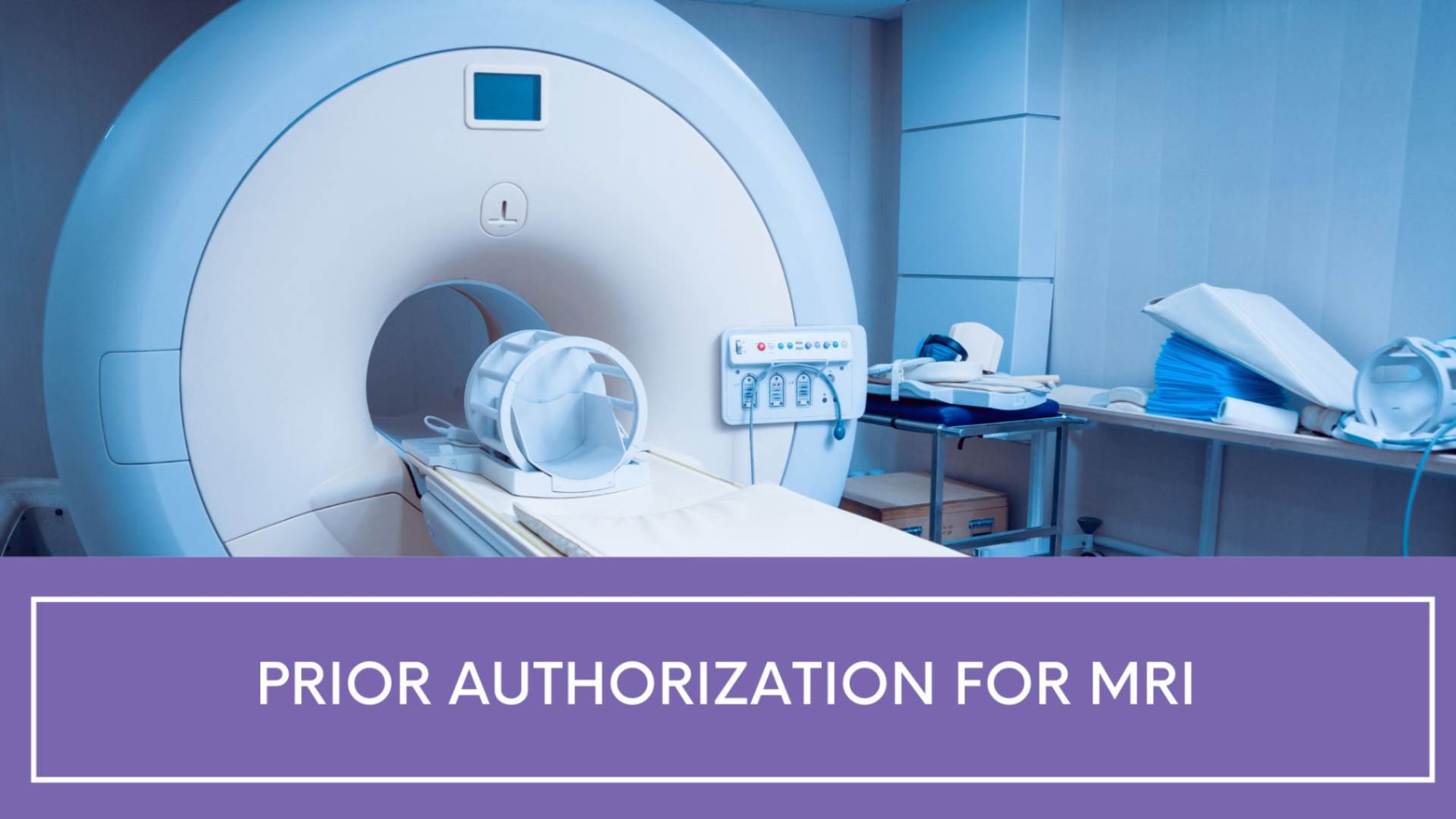Prior Authorization for MRI
A large number of Prior authorization for MRI scans get delayed primarily due to Prior Authorization companies issues. These delays can result in patient frustration as they wait for proper diagnosis or treatment, and can also be burdensome for physicians, who already have a lot on their plate. Prior authorization is a process where the insurers approve of covering specific medical procedures like MRI before the care is carried out. This process is crucial to ensure the medical necessity of the procedure, helping handle healthcare expenses and eliminate unnecessary treatments.
For patients, this means they will have to wait before attaining proper care even for serious conditions. For physicians, it adds to burdensome administrative loads. In this blog, we will simplify the prior authorization process flow and practical ways for patients and physicians to manage it effectively, minimizing delays and frustrations throughout the care journey.
Table of Contents
Role of Prior Authorization for MRI Procedures
MRIs are effective diagnostic tools, but its highly complex and expensive. This means that the insurers often need approval before they pay. This is carried out to help handle expenses and prevent unnecessary tests through inappropriate orders. For instance, insurers may need to verify the necessity for MRI in case of chronic injuries, pain, and long-term medical issues.
The ultimate aim of PA is to ensure efficient use of the resources and that the patients receive the right service and care at the right time. New-age technologies, like Artificial Intelligence, are increasingly adopted by insurance organizations to speed up entire workflows. Through proper automation of decision-making, AI can minimize the time spent on manual reviews and eliminate unnecessary delays during patient care.
Challenges Physicians Face in Prior Authorization for MRI
Administrative Burden: The PA process makes the best use of the time and resources that could be spent right on patient care. Doctors often find themselves immersed in administrative paperwork and phone calls with the insurers instead of focusing on the immediate requirements of the patients.
Patient Care Delays: Approval delays can majorly impact patient outcomes, especially in time-sensitive or urgent scenarios. This can result in longer treatment or waiting periods, increasing patient anxiety and even worsening health conditions.
Insurance Denials: Insurance organizations often deny PA requests due to incomplete documentation or unclear evidence of the urgent requirement of the procedure. This can lead to major roadblocks, forcing doctors to attain more details or appeal the decision.
Need for careful consideration: Physicians must submit and thorough PA request, ensuring that all required documentation is included and the medical necessity is identified and stated. This preparation is time-consuming yet necessary to avoid unnecessary delays and denials.
Patient Concerns and Frustrations
Confusion: Many patients cannot fully comprehend the need for medical prior authorization services, resulting in frustration. They may wonder why they must wait for approval before the procedure that they think is essential for their well-being.
Diagnosis delays: Waiting for prior authorization for surgery can result in delays in diagnosis and treatment, which can increase health issues and thereby anxiety for patients. The longer they wait, the more uncertain, confused, and stressed they become.
Financial Load: Patients often encounter unexpected financial roadblocks due to co-pays, deductibles, and out-of-pocket expenses liked with MRI processes. These expenses can be a major stress source, especially if the PA process adds to overall costs.
How Physicians Can Streamline the Process
Provide clarity on medical necessity statements: To reduce delays, physicians must ensure that their documentation highlights the medical requirement for the MRI process. The more detailed and specific the request, the fewer chances for it to get denied.
Leverage Electronic Tools: Utilizing electronic PA tools can speed up the process by minimizing errors and increasing efficacy. These tools enable quicker submissions and tracking status of approvals, enabling physicians to stay updated on the requests.
Cultivate Strong Relationships with Insurers: Physicians who work alongside insurance providers can often explore the process with ease. By building relationships with key insurance contacts, physicians can attain answers quickly and minimize potential delays and denials.
Educating Patients on Prior Authorization
- Transparency: It’s indisputable to explain PA processes to patients right from the beginning. By proper informing, they can allow patients to know what to expect, like, how long it takes for approval and the reasons required. Physicians can help patients feel more in control and less frustrated about the process.
- Empowerment: Empower patients to take an active role in their care. This involves staying informed about the approval processes and reaching out to the insurance company if needed. Empowered patients can minimize delays and advocate for quicker processing time.
- Resources: Providing patients with proper documentation access, including details about insurance providers and what is needed for approval, can help them feel more confident in exploring the system. Providing them with contact information for their insurer also enables them to follow up if required.
Future Trends in Prior Authorization
AI and automation: New innovative technologies, like AI are starting to play a major part in minimizing manual workloads linked with prior insurance authorization. These systems can quickly assess and process data, make quicker decisions, be efficient, and minimize patient wait times to attain approval.
Policy Changes: There is an increasing need for regulatory shifts to make the medical prior authorization process less tiresome for both physicians and patients. Proposed changes can optimize the process, reduce paperwork, and enable faster decision-making.
Patient-Centered Approaches: Improvingly, there is a focus on making PA more patient-friendly. Efforts to reduce delays and give clear communication are attaining traction, ensuring patients encounter less stress and frustration during the process.
Wrapping Up
Understanding and exploring the insurance prior authorization process is important for both patients and physicians to ensure timely approvals for MRI scans. Physicians can minimize delays by delivering clear documentation, leveraging technology, and working alongside insurance companies. Patients can attain the best benefits from utmost transparency and resources that aid them in having a clear view of the process and staying updated.
For a seamless Prior Authorization workflow for your practice, Practolytics delivers advanced billing options, optimized documentation, and tools to enhance patient care management. Visit Practolytics to understand more or schedule a demo now!
ALSO READ – Prior Authorization Power: Fueling Radiology Practice Revenue
Talk to Medical Billing Expert Today — Get a Free Demo Now!






